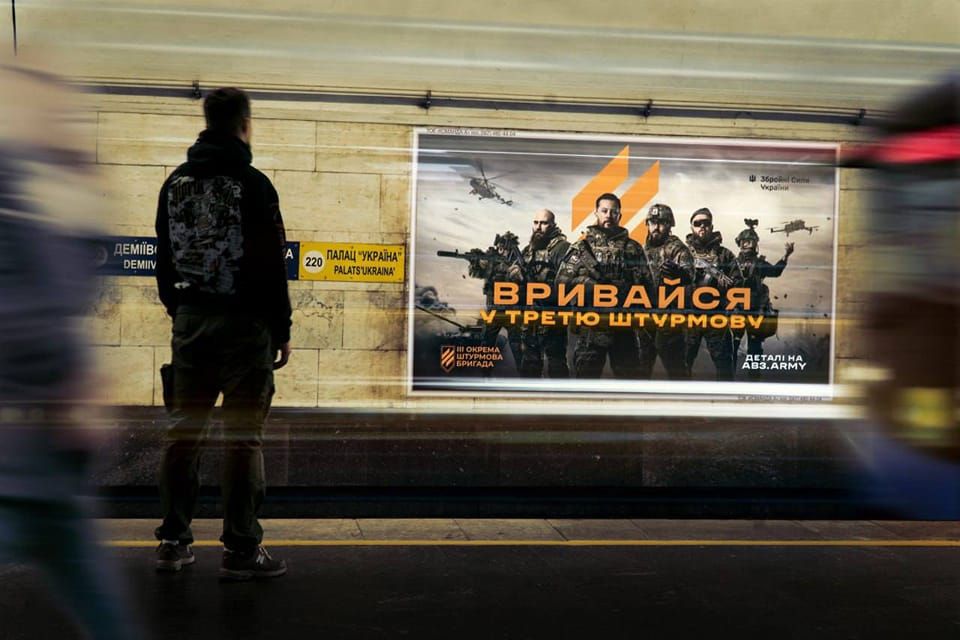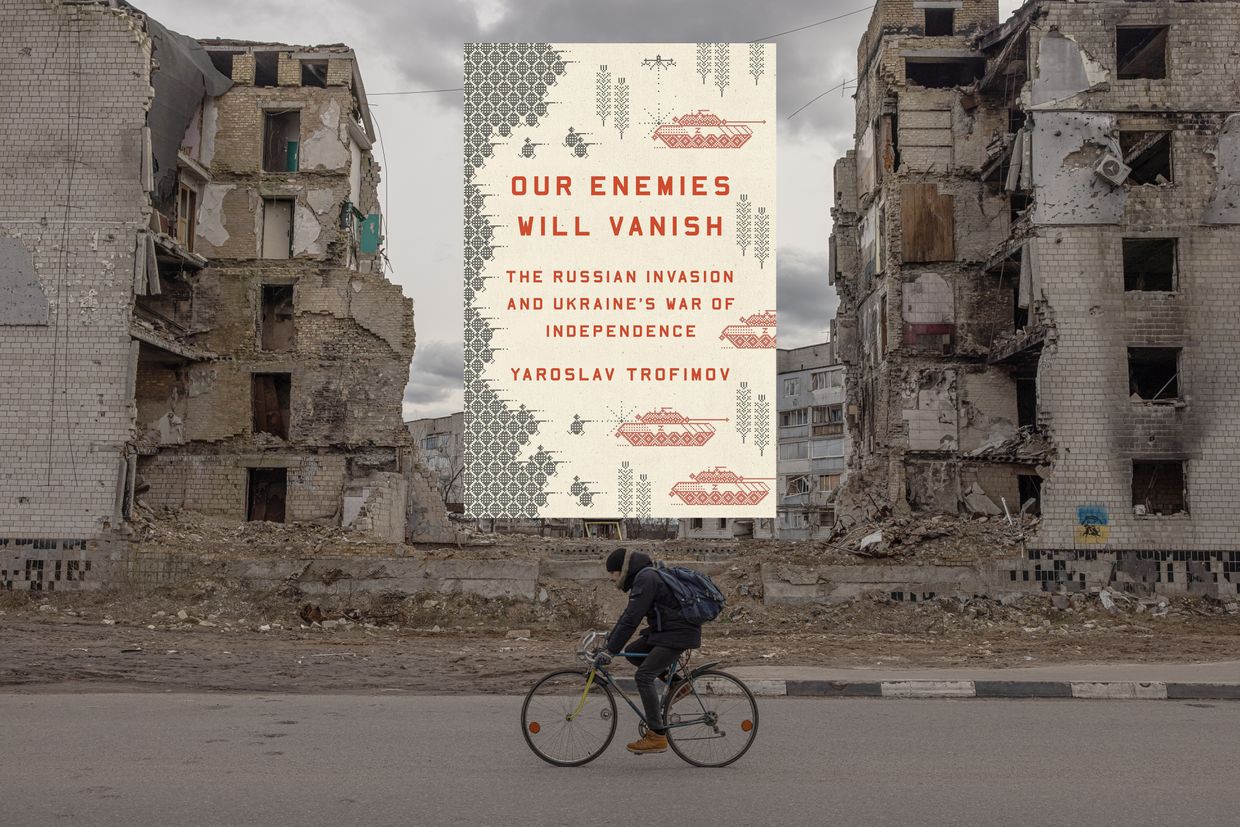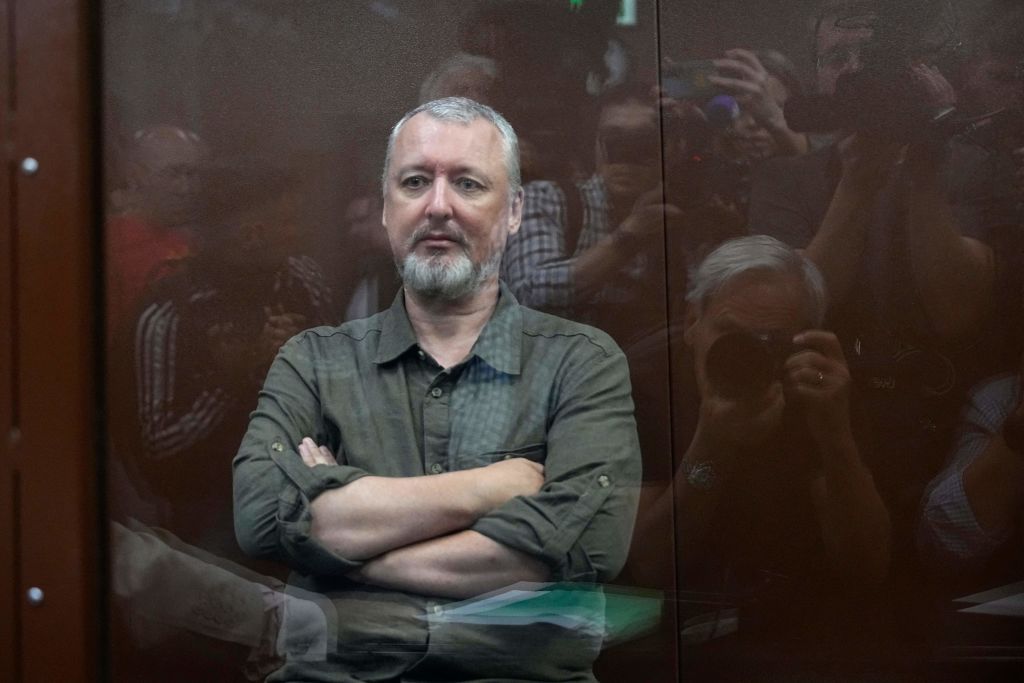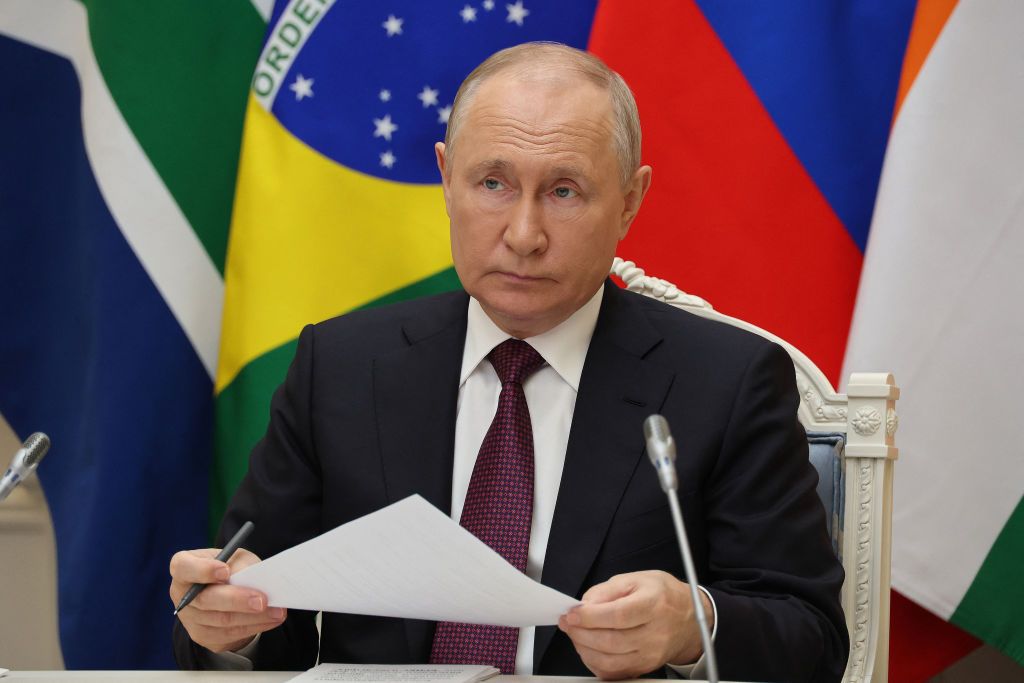Ukraine war latest: UN Security Council to hold session on Il-76 crash

Key updates on Jan. 25:
- UN Security Council to hold session on crashed Il-76
- PACE calls on European parliaments to recognize Russia's abduction of Ukrainian children as genocide
- EU allocating $16.7 million for school shelters in Ukraine
- Official: 2 Ukrainian teenagers deported by Russia return to their families
- Denmark announces $13 million for Ukraine's cybersecurity
- Russian ex-warlord Girkin sentenced to 4 years on extremism charges
- Russian court jails Daria Trepova over explosion that killed propagandist Tatarsky
The U.N. Security Council will hold an emergency meeting on the crash of the Russian Il-76 transport plane, which Russia claims carried Ukrainian prisoners of war (POW), the Voice of America reported on Jan. 25.
The plane crashed in Russia's Belgorod Oblast on Jan. 24, with the cause of the incident still unclear. While Moscow alleged that 65 Ukrainian POWs were on board the plane during the fatal crash, Ukraine has not confirmed this claim and called for an international investigation.
Russian Foreign Minister Sergey Lavrov blamed Ukraine for the incident, labeling it a "terrorist attack" and calling for an emergency session of the U.N. Security Council.
The meeting will take place at midnight on Jan. 26.
Ukraine's military intelligence (HUR) confirmed that a prisoner exchange had been planned for Jan. 24 but did not happen and that it is verifying the Russian claim regarding the Ukrainian POWs.
The military intelligence agency also said the Russian side did not inform it about the need to ensure the safety of the airspace before the plane crashed over Belgorod.
Ukraine's General Staff said in its statement that Kyiv is closely monitoring the launch points of Russian missiles and the logistics of their delivery, especially with the use of military transport aircraft, amid intensifying Russian attacks.
In an evening address on Jan. 24, President Volodymyr Zelensky called for an international investigation and said that Ukraine is trying to find out more details about the incident.
"It is obvious that the Russians are playing with the lives of Ukrainian prisoners, with the feelings of their relatives and with the emotions of our society," Zelensky said, adding that Ukraine had passed all available information to its allies.
The meeting on the Il-76 will be preceded by a close session with International Atomic Energy Agency (IAEA) Director Rafael Grossi speaking on the situation at the Russian-occupied Zaporizhzhia Nuclear Power Plant.
The IAEA reported last week that Russia has again laid mines around the plant, raising fresh security concerns at the vital power station occupied by Moscow since March 2022.

PACE calls on European parliaments to recognize Russia's abduction of Ukrainian children as genocide
The Parliamentary Assembly of the Council of Europe (PACE) adopted a resolution calling on European leaders to make all efforts to return Ukrainian children abducted by Russia home, the Council of Europe's press service said on Jan. 25.
Since February 2022, over 19,500 Ukrainian children have been identified as abducted from Russian-occupied territories and sent to Russia, Belarus, or other Russian-controlled areas of Ukraine, according to a Ukrainian national database on child abductees. Only 388 of them have been able to return home.
PACE adopted the resolution unanimously based on the report by the Ukrainian representative in the assembly, Olena Khomenko. The document calls on national parliaments of European countries to recognize the abduction as genocide and on the international community to help Ukraine retrieve the children.
The resolution text reads that "all Ukrainian children have the right to enjoy the rights and freedoms enshrined in relevant international human rights instruments."
The document further emphasized that "the best interests of the child must prevail in all decision-making processes concerning them," reinforcing the principle that children should never be used as "a means of exerting pressure or as war trophies."
PACE also expressed gratitude to European countries that provided shelter and assistance to Ukrainian children fleeing Russian aggression.
Addressing the assembly online, First Lady Olena Zelenska asked national parliaments "to join in order to force Russia to comply with at least the Geneva Conventions and immediately provide comprehensive lists with the names and whereabouts of all Ukrainian children who have been illegally deported."
The assembly said in April 2023 that Russia's forced abduction of Ukrainian children shows evidence of genocide.
In November 2023, PACE established a commission on the protection of Ukrainian children affected by Russian aggression.

EU, Lithuania allocating $16.7 million for school shelters in Ukraine
The European Commission and Lithuania are allocating 15.5 million euros (around $16.7 million) to build bomb shelters for Ukrainian schools, according to the Lithuanian Central Project Management Agency (CPVA) responsible for implementing the project.
Russia's full-scale war against Ukraine has reportedly destroyed or damaged one in seven schools in Ukraine and forced 1.6 million schoolchildren out of education. Some 900,000 Ukrainian children study remotely as only schools equipped with bomb shelters are allowed to operate offline.
Most of the amount, 15 million euros, will be allocated by the European Commission, while Lithuania is contributing half a million euros.
The project will prioritize Ukrainian regions close to the front line or the border with Russia — Chernihiv, Sumy, Mykolaiv, Zaporizhzhia, Kharkiv, and Odesa — the CPVA wrote in a press release. The organizers plan to build at least five next-to-school bomb shelters in these oblasts.
"Russia's war of aggression is robbing thousands of Ukrainian children of a normal life and education. Our most recent initiative underlines the EU's unwavering commitment to ensure an educational environment that is as safe as possible for all children in Ukraine," said Katarina Mathernova, ambassador of the European Union to Ukraine.
All bomb shelters built under the initiative will be underground and have radiation protection. They will be able to accommodate around 1,000 people with an approximate area of 2,000 square meters, suitable not only for protection but for learning and extracurriculars.
"Our ambition is to get as many children as possible back to school. To do that, safe shelters must be built in the vicinity, meeting the latest requirements. So that children and teachers can not only shelter from bombs but also continue their lessons and activities during, unfortunately, regular air raids," said Rasa Surauciene, deputy director of the CPVA.
Lithuania is among Kyiv's staunchest supporters against Moscow's aggression. The Lithuanian government approved a long-term military aid package for Ukraine worth 200 million euros ($219 million) earlier this month.
Official: 2 Ukrainian teenagers deported by Russia return to their families
Two Ukrainian teenagers previously deported to Russia from the occupied part of Kherson Oblast returned to their families in Ukraine, Kherson Oblast Governor Oleksandr Prokudin reported on Jan. 25.
Since February 2022, nearly 20,000 Ukrainian children have been identified as abducted from Russian-occupied territories and sent to other Russian-controlled areas of Ukraine or to Russia itself, according to a Ukrainian national database. Ukraine has only been able to return about 400 children.
The teenagers returned on Jan. 25 are a 16-year-old boy and a 17-year-old girl from the village of Krynky on the east bank of the Dnipro River, held by Russia since the start of the full-scale invasion, according to Prokudin.
After Ukraine liberated Kherson and other regional settlements on the river’s west bank in November 2022, the teenagers were reportedly deported to Russia’s Krasnodar region.
“The efforts of many services resulted in returning the children to the Ukraine-controlled territory, to their families. Thanks to the organization Save Ukraine, which contributed to this,” the oblast governor said on Telegram.
Earlier the same day, the Parliamentary Assembly of the Council of Europe (PACE) adopted a resolution calling on European leaders to make all efforts to return Ukrainian children abducted by Russia home.
In March 2023, the International Criminal Court (ICC) issued arrest warrants for Russian President Vladimir Putin and Russian Children’s Rights Commissioner Maria Lvova-Belova for allegedly overseeing the forced deportations of Ukrainian children to Russia.
The ICC believes Putin “bears individual criminal responsibility” as the leader of Russia for the crimes committed against Ukrainian children.
Denmark announces $13 million for Ukraine's cybersecurity
Denmark has allocated 91 million Danish kroner ($13.3 million) for projects to support the cybersecurity and cyber defense of Ukraine's Armed Forces and Defense Ministry, the Danish Defense Ministry said on Jan. 24.
The aid package is provided under the auspices of the Estonian-Luxembourgish-led IT Coalition for Ukraine, which Denmark has joined with other countries.
"This assistance is an important contribution to the long-term support for strengthening Ukraine's cyber defense," said Danish Defense Minister Troels Lund Poulsen.
"Since the beginning of the invasion, Denmark has significantly contributed to Ukraine's fight for freedom, including in cyberspace. We have repeatedly donated to support cyber defense and critical IT infrastructure in Ukraine."
Denmark, Estonia, and Luxembourg have so far financially donated to the IT Coalition for Ukraine. The coalition includes Iceland, Italy, Latvia, Lithuania, and the Netherlands.
Ukraine and 10 partner countries also established on Dec. 20, 2023, the Tallinn mechanism on cybersecurity to help protect Ukraine against cyber threats.
Along with the Netherlands and the U.S., Denmark leads a coalition to provide Ukraine with F-16 fighter jets.
The country announced a new package of $21.9 million in funding for the reconstruction of Mykolaiv earlier in January.
Russian ex-warlord Girkin sentenced to 4 years on extremism charges
The Moscow City Court sentenced Russian nationalist Igor Girkin, also known as "Strelkov," to four years in prison for inciting extremism online, the Russian independent news outlet Mediazona reported on Jan. 25.
He was also banned from administrating websites and social media network accounts for three years.
Girkin, an ex-intelligence officer who played a pivotal role in Russia's aggression against Ukraine in 2014, was arrested in July 2023 over his Telegram posts, considered by Russian authorities as "extremist." He has been often critical of Moscow's conduct in the war, calling for more hardline measures.
The former warlord was convicted under Part 2 of Article 280, which belongs to the category of medium gravity, with the maximum sentence being no more than five years in prison.
In April 2014, Girkin organized the seizure of the town of Sloviansk, Donetsk Oblast, initiating Russia's war in the Donbas. Girkin admitted later in an interview that he had "pulled the trigger" of Russia's war.
He proclaimed himself the "defense minister" of Russia's proxy forces in Donetsk Oblast in 2014.
In November 2022, The Hague court convicted Girkin and his subordinates in absentia for downing a civilian aircraft flying over Ukraine from Amsterdam to Kuala Lumpur in 2014 and killing all 298 people on board. He was sentenced to life imprisonment.
During the full-scale invasion of Ukraine, he has often lambasted the Kremlin for mishandling the war effort. Girkin co-founded the Club of Angry Patriots, a hardline nationalist movement pushing for more extreme measures to achieve victory over Ukraine.
In December, the warlord's supporters nominated him to run for a presidential election in 2024, but the procedure was not finalized as the notary did not show up to certify their signatures.
Russian court jails Daria Trepova over explosion that killed propagandist Tatarsky
A court in Russia’s Saint Petersburg found Daria Trepova guilty of carrying out an explosion that killed a high-profile pro-Kremlin military blogger Vladlen Tatarsky in April last year, sentencing her to 27 years in prison, BBC Russia reported on Jan. 25.
The explosion occurred on April 2 in a cafe where Tatarsky was hosting an event for followers of his coverage of the war after Trepova handed him a trophy. Trepova, arrested the next day, received “the most cruel sentence against a woman in the entire history of modern Russian justice,” according to her lawyer.
Trepova was accused of committing a terrorist attack, illegal trafficking of explosive devices, and forgery of documents and was found guilty of all the charges, BBC Russia wrote.
Trepova pleaded guilty only to using forged documents and has insisted that she had no intention of harming Tatarsky. She claims to have been set up and convinced that a listening device was hidden in the trophy.
In her court statement, Trepova said, as cited by the BBC, that she was “very hurt and very ashamed that (her) gullibility and naivety led to such catastrophic consequences” and asked for forgiveness from the victims.
Tatarsky died on the spot, and dozens of other people were injured in the explosion. The Saint-Petersburg cafe where the assassination took place reportedly once belonged to Yevgeny Prigozhin, the late leader of the notorious Russian private military organization Wagner Group.
Russia's National Anti-Terrorist Committee accused the Ukrainian special services of plotting with Russian opposition leader Alexei Navalny’s Anti-Corruption Fund to kill the propagandist, who consistently agitated for the further conquering of Ukrainian territory. Moscow claimed Trepova was one of the fund’s “agents.”
In her testimony in court, Trepova reportedly said that she had received the task of getting to know Tatarsky from Roman Popkov, a journalist and a former member of the National Bolshevik Party banned in Russia, as well as a person with the pseudonym Gestalt, who then asked Trepova to give Tatarsky the trophy.
“I never denied the objective side. I really brought the trophy there, I did not support the war, I wanted to go to Ukraine, I fulfilled requests, which later became tasks, but all this time, I was sure that the trophy only contained a microphone,” Trepova said, according to the BBC.
“And I was willing, in a sense, to risk my freedom to find out the truth. But I was not ready to sacrifice the lives of other people.”
Tatarsky, born Maksim Fomin in the now-occupied part of Donetsk Oblast, was one of the most well-known Russian propagandists. Russian state media called him a “military correspondent," but Tatarsky was not a journalist, and himself fought on the Russian side.
Tatarsky admitted he took part in the hostilities during Russia’s 2014 invasion of the Donbas and then in the full-scale invasion of Ukraine.
















